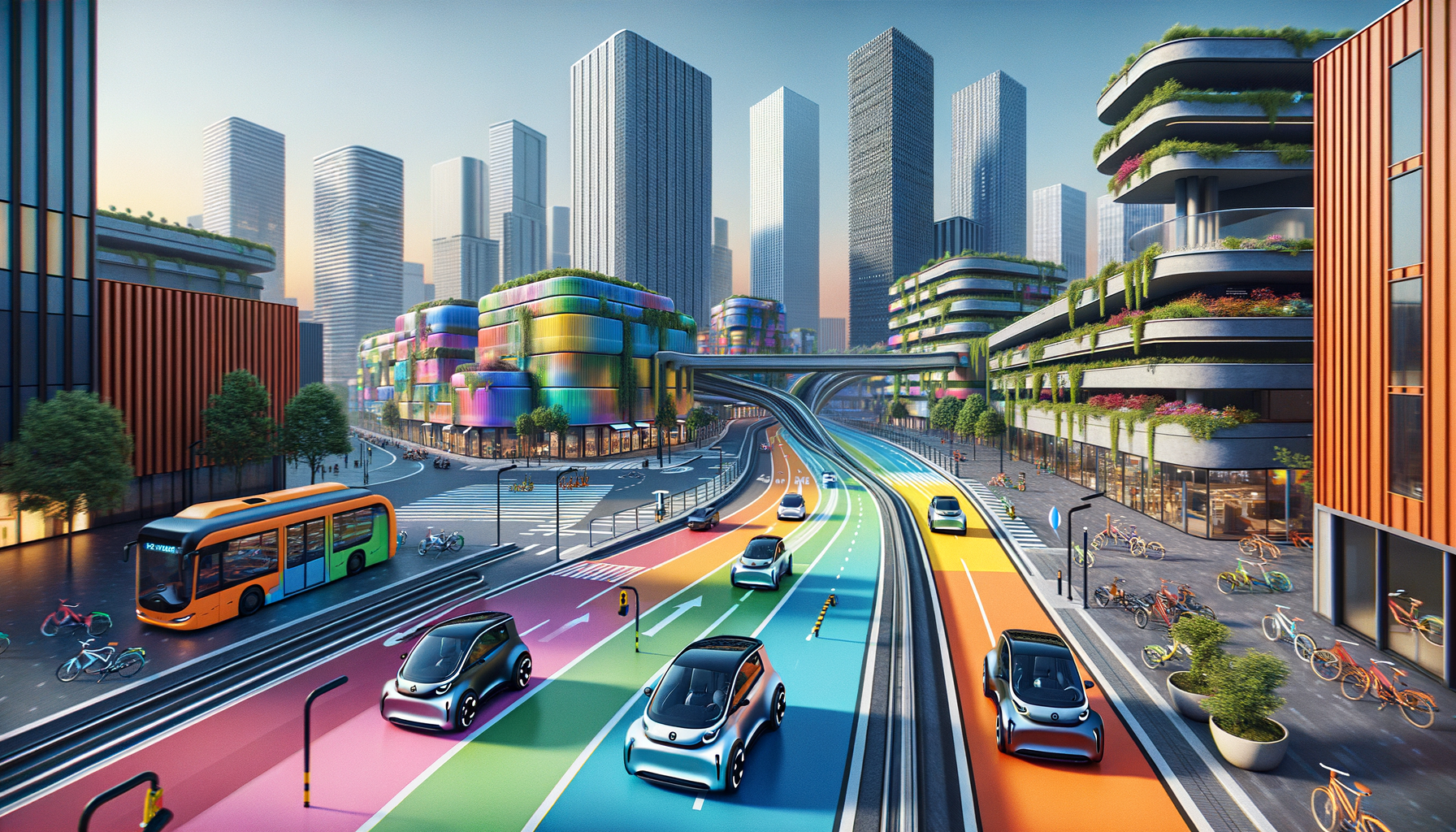The Emergence of Small Electric Cars
In recent years, the automotive industry has witnessed a significant shift towards electric vehicles (EVs), particularly small electric cars. These compact vehicles are designed to meet the needs of urban dwellers who face challenges such as traffic congestion, limited parking, and environmental concerns. The emergence of small electric cars is driven by a combination of technological advancements, changing consumer preferences, and governmental policies aimed at reducing carbon emissions. As cities grow denser, the demand for efficient and eco-friendly transportation options increases, making small electric cars an attractive choice for many.
Small electric cars offer several advantages over their larger counterparts. They are typically more affordable, both in terms of purchase price and maintenance costs. Additionally, their compact size makes them ideal for navigating crowded city streets and fitting into tight parking spaces. These vehicles are also equipped with advanced technologies that enhance the driving experience, such as regenerative braking systems and user-friendly infotainment systems.
Moreover, small electric cars contribute to a cleaner environment by producing zero tailpipe emissions. This is particularly important in urban areas where air quality is a major concern. Governments around the world are implementing policies to encourage the adoption of electric vehicles, including subsidies, tax incentives, and the development of charging infrastructure. These efforts are helping to accelerate the transition to a more sustainable transportation system.
Technological Innovations in Small Electric Cars
The rapid advancement of technology has played a crucial role in the development of small electric cars. One of the most significant innovations is the improvement in battery technology, which has led to increased range and reduced charging times. Modern small electric cars can travel longer distances on a single charge, making them more practical for everyday use. Additionally, fast-charging stations are becoming more widespread, allowing drivers to quickly recharge their vehicles during short stops.
Another key innovation is the integration of smart features that enhance the driving experience. Many small electric cars are equipped with advanced driver-assistance systems (ADAS) that provide features such as adaptive cruise control, lane-keeping assist, and automatic emergency braking. These technologies not only improve safety but also make driving more convenient and enjoyable.
Furthermore, small electric cars are increasingly connected, offering seamless integration with smartphones and other devices. This connectivity allows drivers to access real-time traffic information, locate charging stations, and remotely control certain vehicle functions. As technology continues to evolve, small electric cars are likely to become even more sophisticated, offering enhanced performance, efficiency, and convenience.
Economic and Environmental Benefits
Small electric cars offer numerous economic and environmental benefits that make them an appealing choice for urban residents. Economically, these vehicles are cost-effective in several ways. The initial purchase price of a small electric car is often lower than that of larger electric or traditional gasoline-powered vehicles. Additionally, the cost of electricity as a fuel is generally cheaper than gasoline, leading to significant savings over time. Maintenance costs are also reduced, as electric vehicles have fewer moving parts and do not require oil changes.
From an environmental perspective, small electric cars contribute to reducing greenhouse gas emissions and improving urban air quality. By producing zero tailpipe emissions, these vehicles help to decrease the concentration of pollutants such as nitrogen oxides and particulate matter in the air. This is especially important in cities where air pollution is a major health concern.
Furthermore, the adoption of small electric cars supports the transition to renewable energy sources. As the electricity grid becomes greener, the environmental impact of charging electric vehicles continues to decrease. This aligns with global efforts to combat climate change and promote sustainable development.
Challenges and Opportunities
Despite their many advantages, small electric cars face several challenges that need to be addressed to ensure widespread adoption. One of the primary concerns is the availability of charging infrastructure. While the number of charging stations is increasing, there are still areas where access is limited, which can deter potential buyers. Expanding the charging network and ensuring convenient access is crucial for the continued growth of the electric vehicle market.
Another challenge is the perception of range anxiety, where drivers fear running out of power before reaching their destination. Although advancements in battery technology have improved the range of small electric cars, educating consumers about the capabilities and reliability of these vehicles is essential to overcoming this barrier.
However, these challenges also present opportunities for innovation and growth. For instance, the development of new business models, such as battery swapping and mobile charging services, can address infrastructure limitations. Additionally, partnerships between governments, automakers, and technology companies can accelerate the deployment of charging stations and promote the benefits of electric vehicles.
The Future of Small Electric Cars
The future of small electric cars looks promising as technological advancements, policy support, and consumer demand continue to drive their growth. As battery technology improves, we can expect even greater range, faster charging times, and lower costs, making these vehicles more accessible to a broader audience. Furthermore, the integration of autonomous driving features could revolutionize urban transportation, offering new levels of convenience and safety.
Governments worldwide are likely to continue supporting the transition to electric vehicles through incentives and infrastructure development. This support, combined with an increasing awareness of environmental issues, will further boost the adoption of small electric cars. Additionally, as more automakers enter the market, consumers will have a wider range of options to choose from, catering to diverse preferences and needs.
Overall, small electric cars are set to play a significant role in shaping the future of urban mobility. By offering a sustainable, efficient, and cost-effective transportation solution, these vehicles are well-positioned to meet the challenges of modern city living and contribute to a cleaner, greener world.




Leave a Reply